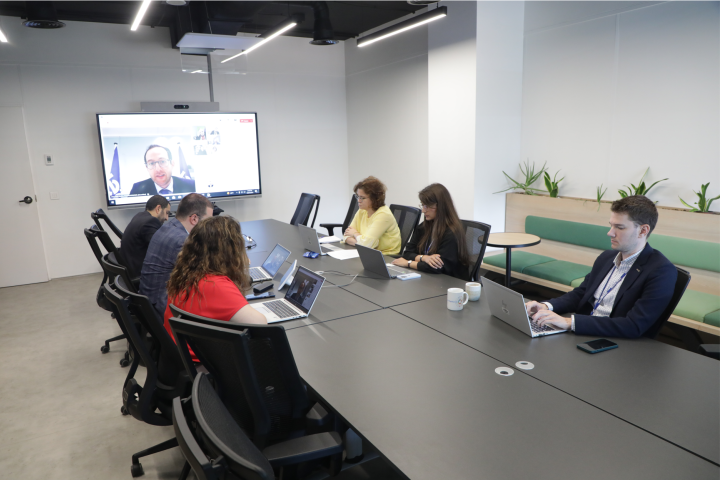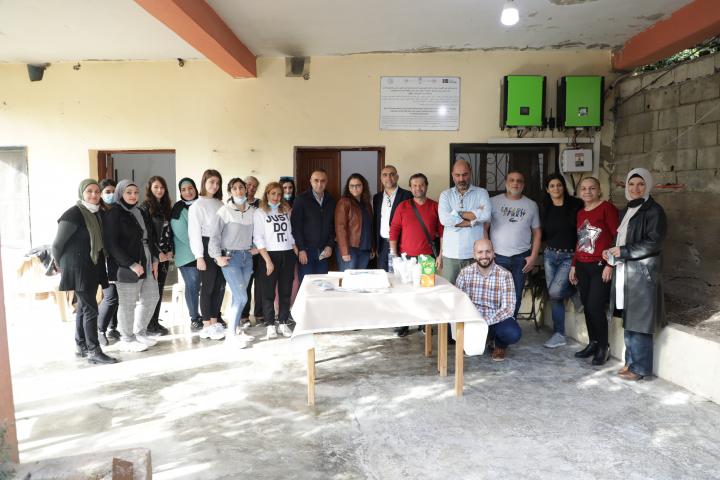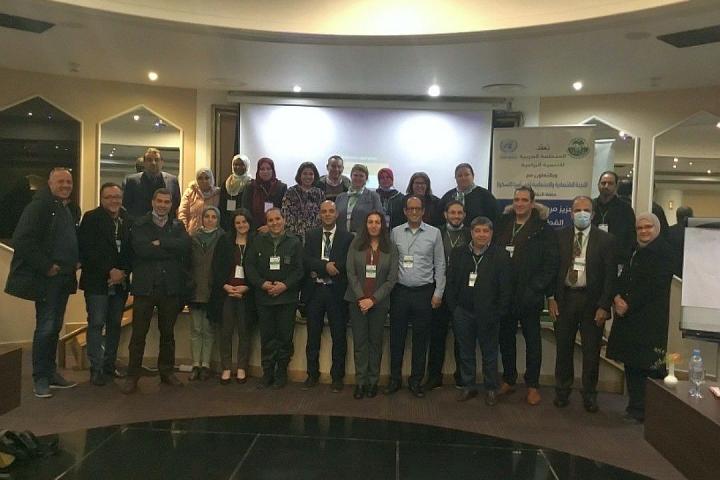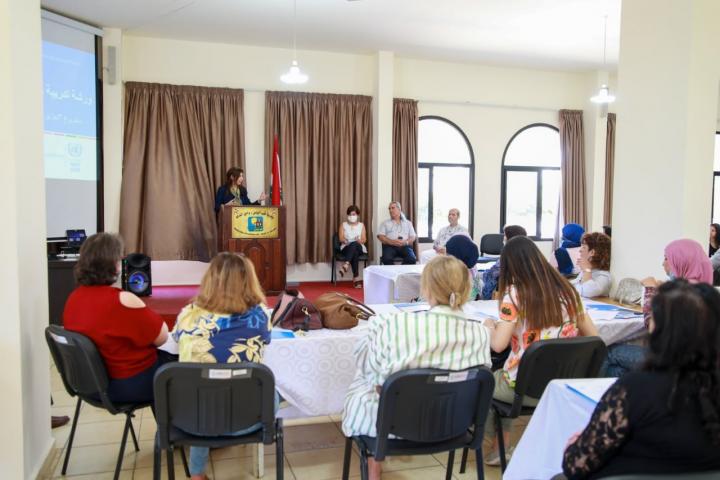Press release
13 Apr 2018
Beirut-Cairo
Environment experts in Arab region raise the alarm, agree on key actions to support natural resources

Environment experts from the Arab region wrapped up a two-day meeting on Thursday at the League of Arab States (LAS) headquarters in Cairo, Egypt that explored means by which societies in the Arab region can address risks arising from pollution and natural resource depletion, conserve terrestrial ecosystems to achieve a healthy and productive environment, and shift to more sustainable consumption and production patterns.
This year, the environmental component is strongly expressed across the theme and goals of the 2018 High-Level Political Forum on Sustainable Development (HLPF). This is of particular importance to the Arab region due to the pressing environmental challenges it witnesses, namely water scarcity, desertification and land degradation, low natural resource use efficiency, and access to land resources.
These challenges are exacerbated by high population growth rates, conflicts and political unrest that cause displacement and refugees, all of which contribute to increased pressure on natural resources in host countries.
In preparation for the 2018 session of the Arab Forum for Sustainable Development (AFSD), the UN Economic and Social Commission for Western Asia (ESCWA), in partnership with UN Environment and the LAS Secretariat, organized the “Arab Preparatory Meeting on Environmental and Natural Resources Issues for the 2018 AFSD & HLPF”.
To best support the region’s contributions to the 2018 AFSD, the meeting mirrored the environmental topics of the 2018 HLPF, and was thematically structured around the three major environment-related Sustainable Development Goals (SDGs) for this year, SDGs 11, 12 and 15 (SDG 6 and SDG 7 were addressed in other focused preparatory meetings). The inter-linkages and synergies between them and other SDGs was one key focus.
“We cannot tackle the above-mentioned goals separately given that the four major environmental issues on the agenda of this year's HLPF are inter-linked, said LAS Chief of Natural Resources, Sustainability and Partnerships, Ambassador Shahira Wahbi, in her opening remarks.
“All those goals are related to the environment and natural resources which are of major importance in the Arab region because of the environmental challenges that it is facing, such as water scarcity, desertification and land degradation, and low efficiency in the use of natural resources. This situation has led to a growing number of homeless individuals, displaced persons and refugees and thus increased pressure on natural resources in a number of countries in the region” she explained.
Ms. Wahbi stressed that since the 2030 Agenda aims to lay the foundations for human dignity and well-being, it is important to make Arab societies resilient, by promoting the sustainable management of natural resources, creating a clean environment and providing ecological services, and raising awareness within communities.
“This is how experts play an important role in guiding Arab societies to become more resilient to face the risks of pollution, the depletion of natural resources, and the degradation of ecosystems,” she explained.
Meanwhile, Mohamed Al-Hamdi, Officer in Charge of ESCWA’s Food and Environment Policies Section, highlighted that the meeting was an opportunity to discuss the integration of Arab policies which is required to achieve progress: “The guidance and coordination role of the Arab environment sector can only be efficient through strong legal and institutional frameworks,” he stressed.
UNE’s Regional Resource Efficiency Officer, Fareed Bushehri, lauded joint efforts by UNE’s West Asia Office, the LAS’ technical secretariat and ESCWA to organize a series of events, including this one. He warned that reports show the planet annually loses an area of fertile land equivalent to the size of Ireland because of overgrazing and deforestation which increase desertification. This in turn has negative impacts on the climate and threatens water and food security.
“This is a serious problem, especially in the Arab region which is considered one of the world's driest areas with more than 70 to 80 per cent of land area desertification, most of which is under the water poverty line,” he said, raising the alarm.
He added that the problem of industrial and hazardous materials and waste has become an urgent matter in the Arab world due to industrial development, rapid urbanization and new and unsustainable widespread consumption patterns brought by “irresponsible” aspects of globalization.
“So, how can we activate our commitment? How do we link it to the 2030 Agenda for Sustainable Development, sustainable economic policies and sustainable development strategies?” he asked.
During the two-day meeting, participants focused on three themes: Sustainable Cities and Pollution; Sustainable Consumption and Production (SCP); and Combating Desertification and Halting Biodiversity Loss. It resulted in a joint regional outcome statement on environment-related issues that will be presented at the Arab Sustainable Development Forum (AFSD) at ESCWA in April.
Since 2014, the United Nations Economic and Social Commission for Western Asia (ESCWA) has been collaborating with regional partners in the yearly organization of the AFSD, to support regional preparations for the HLPF. The 2018 session of the AFSD is taking place from 24 to 26 April 2018 in Beirut, Lebanon. Its outcomes will feed into the 2018 HLPF session, to be convened in New York from 9 to 18 July 2018 under the theme “Transformation towards Sustainable and Resilient Societies”.
*****
For more information:
Nabil Abu-Dargham, Head, ESCWA Communication and Information Unit
+961-70-993-144; email: dargham@un.org
Ms Rania Harb +961-70-008-879; email: harb1@un.org
Ms Myrna Mahfouz: +961-70-872-372; email: mahfouz@un.org
Mr Haidar Fahs: +961-70-079-021; email: haydar.fahs@un.org



